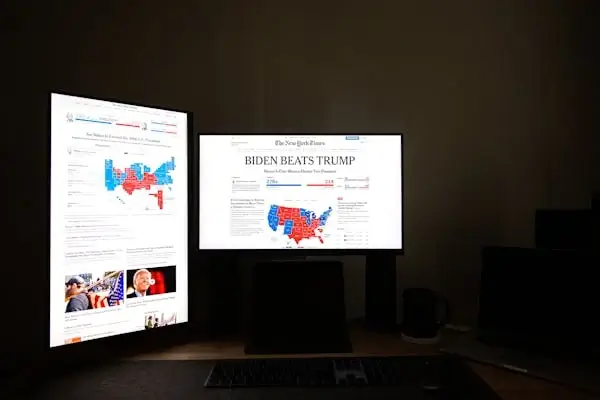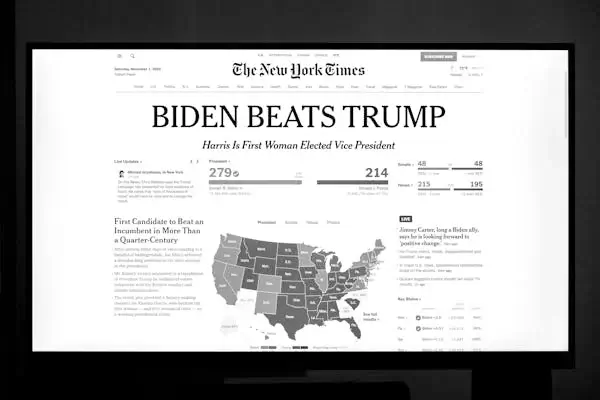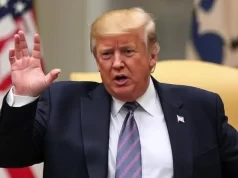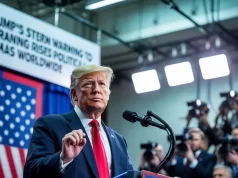Introduction:
Because the public’s outrage is so quiet, Donald Trump is able to profit more than any other president, redefining the line between working for the country and enriching himself. Trump profits ways of handling the presidency, including making political deals and growing his business, have led to arguments about ethics, legal issues and the future of American democracy.
1. Direct Profits from Trump Properties:
While other presidents sold their businesses, Trump kept his during his time in office. As a result, political committees and the Republican Party paid Trump’s businesses $38.3 million.
• Foreign governments gave $7.8 million, with China and Saudi Arabia among them. • He earned up to $160 million through his work with international companies. These numbers show how much Trump’s political role is connected to his business interests.
2. The Trump Cryptocurrency Venture:
Trump made a daring choice by introducing a cryptocurrency which resulted in big profits for him:OpenSecrets+15The Washington Post+15Forbes+15
• It has earned $312 million since it first opened.
• $43 million in fees was collected.
Some people say that this project mixes personal gain with presidential work, especially since government money is used for related events.
3. Why Was Outrage Muted?
Even with obvious ethical issues, there were not many protests from the public. There were several causes involved.
Constant scandals made each new development less surprising.
“People viewed any criticism as coming from partisan sources.”
“Lawmakers didn’t create laws to address business conflicts involving former presidents.”

Key Instances Where Trump Profited from the Presidency
1. Mar-a-Lago: The Winter White House
Because Trump spent so much time at Mar-a-Lago, the cost for members rose from $100,000 to $200,000. There were frequent visits by government officials and foreign diplomats.
2. Trump International Hotel, Washington D.C.
Activists and external governments booked rooms and events, spending millions—raising fears about pay-to-play politics.
3. Golf Course Revenue:
Many of Trump’s golf resorts attracted more visits from politicians, and taxpayers sometimes covered the Secret Service’s expenses for staying there
The Long-Term Implications for Presidential Ethics:
Trump’s presidency has clearly established a new standard for what is acceptable regarding how a president’s business and presidential duties relate. Furthermore, the lack of a strong reaction—whatever the cause—may reflect a growing loss of belief in government leaders’ ethical standards.”
How will the future presidents handle their financial matters? Many of the unwritten rules that applied in earlier administrations seem to have weakened now.
• Considering the situation, could we expect attempts to strengthen the rules concerning conflicts of interest for the president and vice president? After all, the current body of laws was not designed to handle the problems created by Trump’s business practices.
Experience from this era is necessary to stop anyone from abusing the presidency for their own gain. Trump profits The debate on campaign finance and lobbying reform is likely to be affected by what happened during the Trump administration.
Table: Key Avenues of Potential Presidential Profit During Trump’s Term
| Avenue of Profit | Description | Ethical Concern |
| Foreign Government Payments | Foreign diplomats, lobbyists, and state-owned entities spending money at Trump-owned hotels and golf courses. | Potential violation of the Emoluments Clause; foreign governments seeking to curry favor with the President. |
| Domestic Government Spending | Secret Service and other government agencies spending taxpayer money at Trump properties for security, accommodation, and events. | Direct transfer of public funds to private businesses owned by the President; potential for inflated charges. |
| Brand Amplification & Marketing | The prestige and global visibility of the presidency enhancing the value of the Trump brand, leading to increased business opportunities and property values. | Leveraging public office for private financial gain; blurring lines between public service and personal promotion. |
| Increased Membership/Fees | Rise in membership fees and demand at private clubs like Mar-a-Lago, attracting individuals seeking proximity or influence. | “Pay-to-play” concerns; potential for access to the President or his inner circle being tied to financial contributions to his businesses. |
| “Winter White House” Operations | Frequent stays at Mar-a-Lago, making it a de facto official residence, driving business to the property and increasing its public profile. | Direct financial benefit to a private property from official presidential activities; ethical questions about the use of taxpayer funds for private gain. |

FAQs About Presidential Profits and Ethics
Q1: What is the Emoluments Clause, and why was it relevant to President Trump?
The Emoluments Clause (Article I, Section 9, Clause 8) makes it so that federal officials may not receive gifts, payments or titles from foreign states without the approval of Congress.
It mattered to President Trump since critics claimed he was breaking the law by still owning businesses that got payments from foreign governments such as the Trump International Hotel.
Q2: Do other presidents typically divest from their businesses upon taking office?
In the past, U.S. presidents have either sold their business assets or put them in a blind trust to keep conflicts of interest from happening.
Although it has long been common practice, the law doesn’t always require this rule, which aims to ensure officials make decisions for the nation’s good, not for personal gain
Q3: What are the main arguments against a president maintaining business interests while in office?
• Conflicts of Interest: A president’s business interests might influence the decisions they take.
• Managing a large business can take away from the president’s main duties.
Q4: How did the Trump administration respond to accusations of profiting from the presidency?
Most of the time, Trump’s team argued that he didn’t have to follow certain ethics regulations, his sons handled his businesses, and foreign governments paid market prices for services—not to influence him
They used to dismiss any criticism as coming from political sources.
Q5: What are the potential long-term consequences of a president profiting significantly from their office? Trump profits
Especially, the lasting results might include:
As a result, people start to distrust government and its institutions.
Furthermore, there is a growing acceptance of conflicts of interest among people in high office.”
“Recently, there has been an increasing concern about why public servants are making their decisions.”
The belief that the government puts private interests ahead of what is good for everyone.











